外研版选修7 Module 3 Literature复习课件(共57张PPT)
文档属性
| 名称 | 外研版选修7 Module 3 Literature复习课件(共57张PPT) |
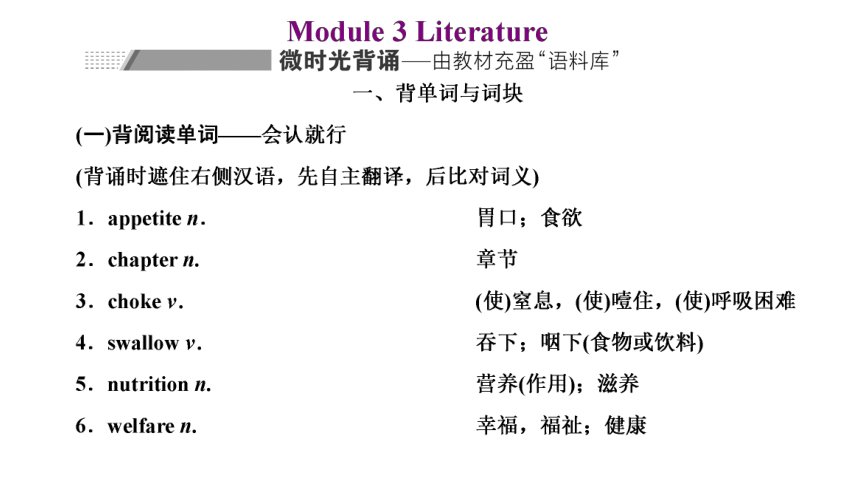
|
|
| 格式 | zip | ||
| 文件大小 | 2.8MB | ||
| 资源类型 | 教案 | ||
| 版本资源 | 外研版 | ||
| 科目 | 英语 | ||
| 更新时间 | 2023-03-29 22:16:53 | ||
图片预览

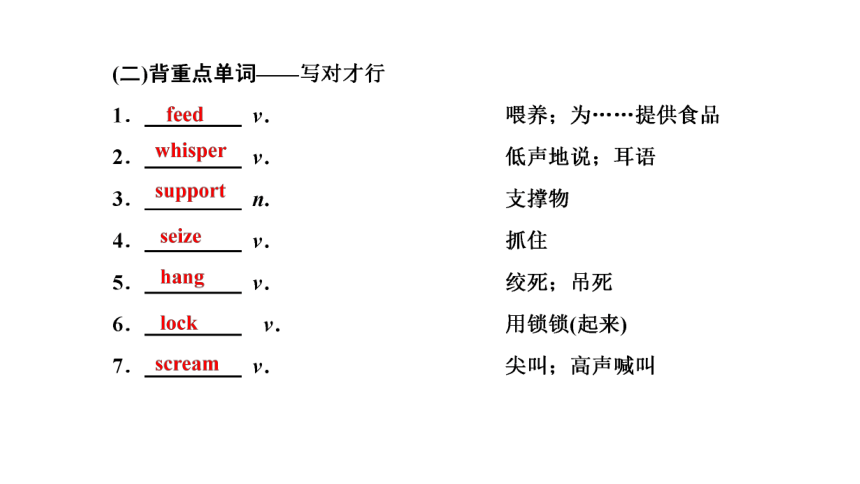
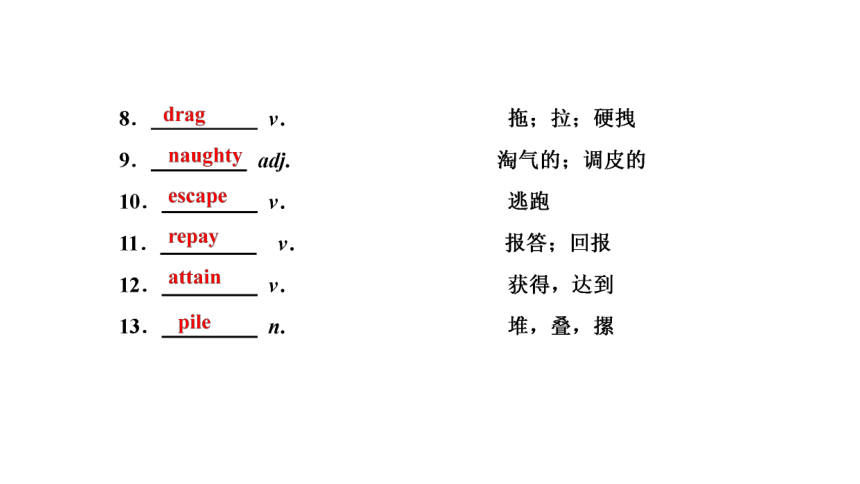
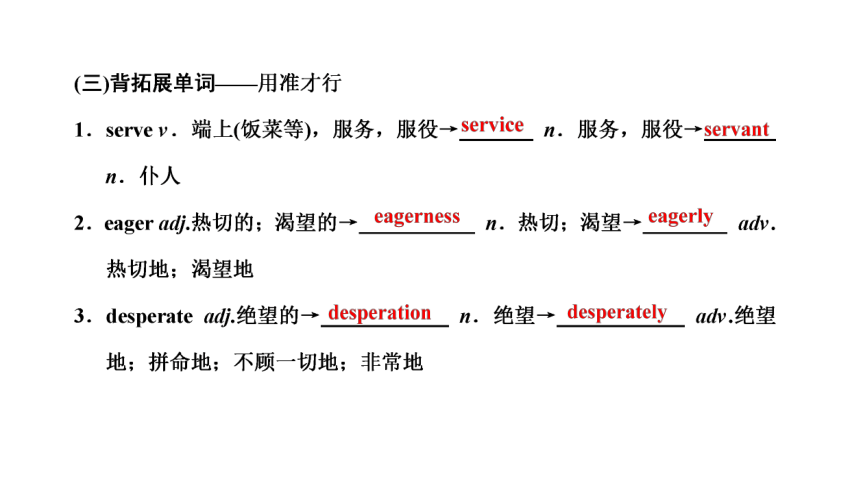
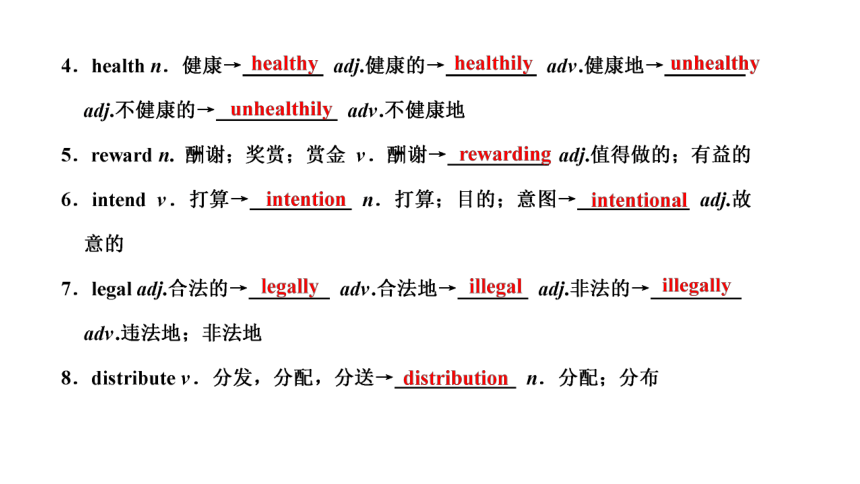
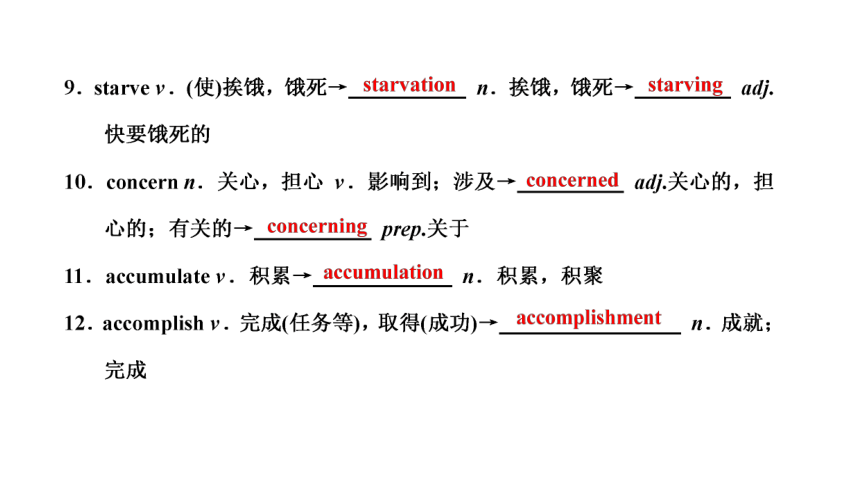
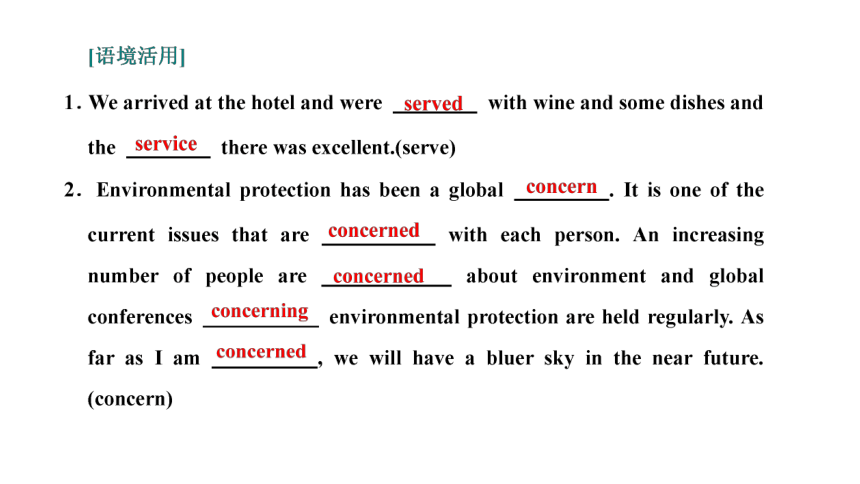
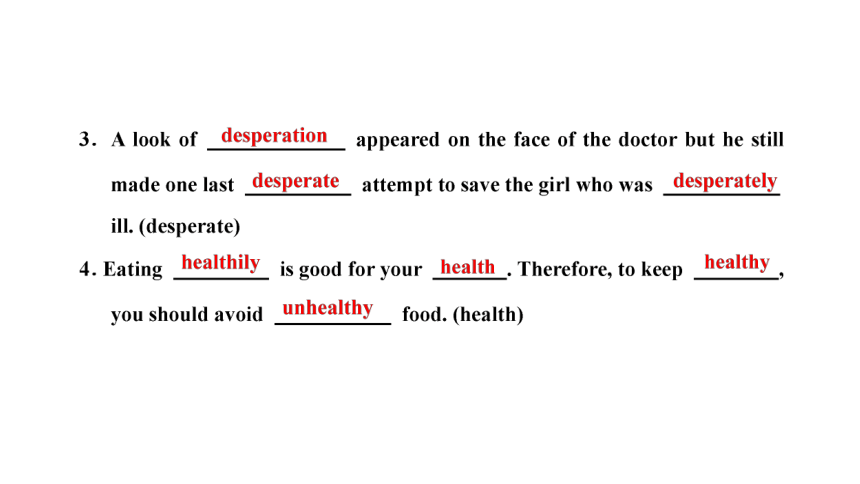
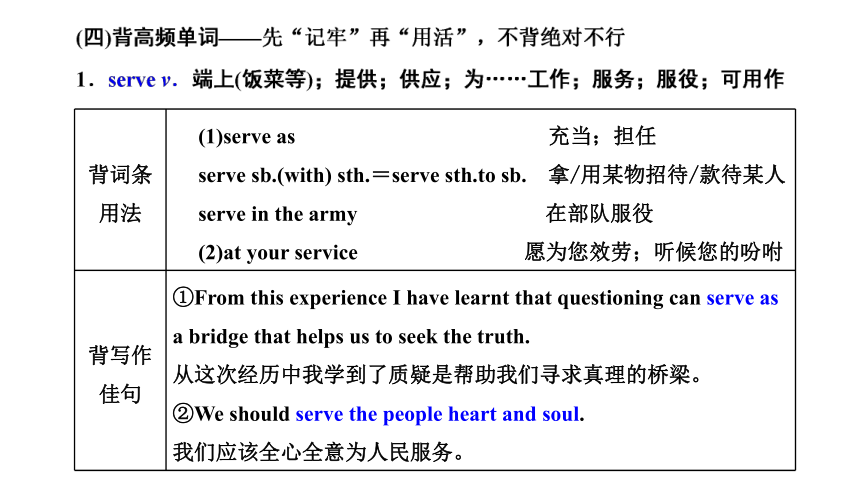
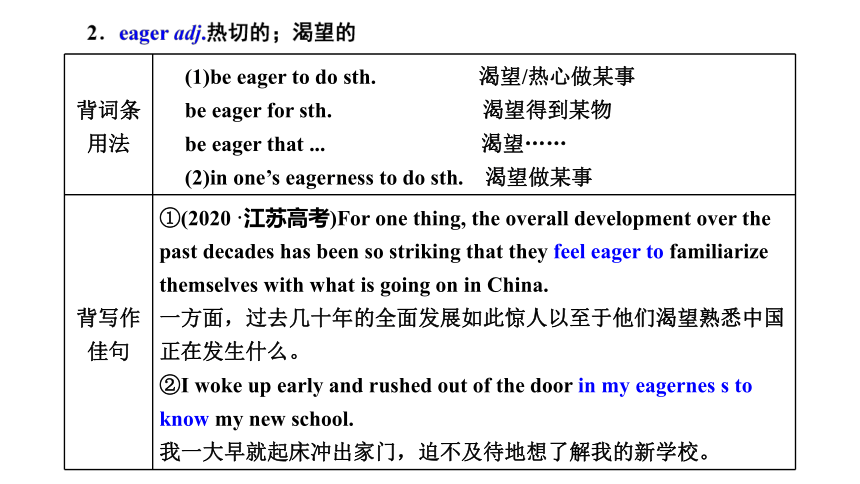
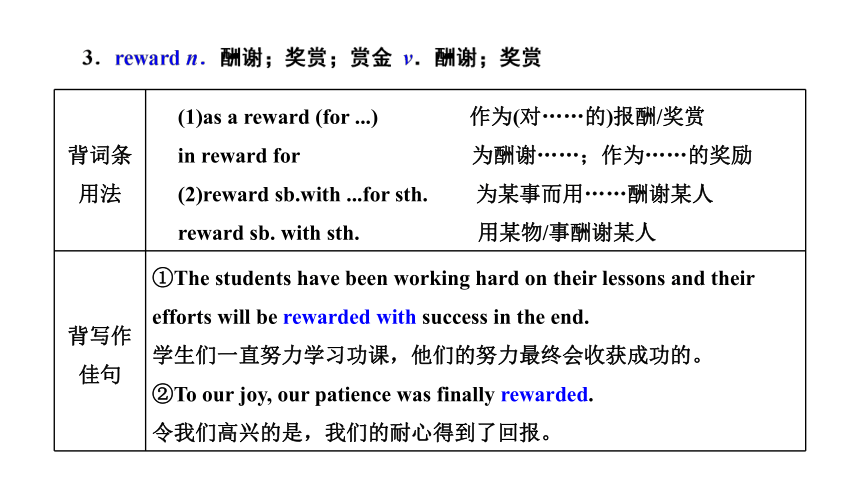
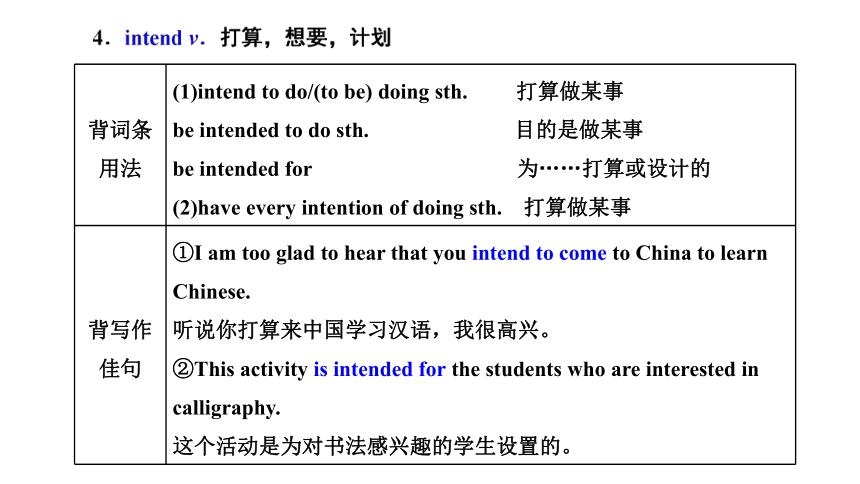
文档简介
(共57张PPT)
背词条用法 (1)serve as 充当;担任
serve sb.(with) sth.=serve sth.to sb. 拿/用某物招待/款待某人
serve in the army 在部队服役
(2)at your service 愿为您效劳;听候您的吩咐
背写作佳句 ①From this experience I have learnt that questioning can serve as a bridge that helps us to seek the truth.
从这次经历中我学到了质疑是帮助我们寻求真理的桥梁。
②We should serve the people heart and soul.
我们应该全心全意为人民服务。
背词条用法 (1)be eager to do sth. 渴望/热心做某事
be eager for sth. 渴望得到某物
be eager that ... 渴望……
(2)in one’s eagerness to do sth. 渴望做某事
背写作佳句 ①(2020·江苏高考)For one thing, the overall development over the past decades has been so striking that they feel eager to familiarize themselves with what is going on in China.
一方面,过去几十年的全面发展如此惊人以至于他们渴望熟悉中国正在发生什么。
②I woke up early and rushed out of the door in my eagernes s to know my new school.
我一大早就起床冲出家门,迫不及待地想了解我的新学校。
背词条用法 (1)as a reward (for ...) 作为(对……的)报酬/奖赏
in reward for 为酬谢……;作为……的奖励
(2)reward sb.with ...for sth. 为某事而用……酬谢某人
reward sb. with sth. 用某物/事酬谢某人
背写作佳句 ①The students have been working hard on their lessons and their efforts will be rewarded with success in the end.
学生们一直努力学习功课,他们的努力最终会收获成功的。
②To our joy, our patience was finally rewarded.
令我们高兴的是,我们的耐心得到了回报。
背词条用法 (1)intend to do/(to be) doing sth. 打算做某事
be intended to do sth. 目的是做某事
be intended for 为……打算或设计的
(2)have every intention of doing sth. 打算做某事
背写作佳句 ①I am too glad to hear that you intend to come to China to learn Chinese.
听说你打算来中国学习汉语,我很高兴。
②This activity is intended for the students who are interested in calligraphy.
这个活动是为对书法感兴趣的学生设置的。
[解其困]
(1) had intended to do sth.=intended to have done sth.“本打算做某事”。
(2)hope, wish, mean, expect, plan, want, attempt等词语也常用过去完成时表示过去未曾实现的愿望或打算,意为“本打算/希望做而未做”。
The cat's lot was about to improve. That year, one of Benjamin's cousins, Mr. Pennington, came to visit. He was impressed with Benjamin's drawings. When he went home, he sent Benjamin a box of paint and some brushes. He also sent six engravings (版画) by an artist. These were the first pictures and first real paint and brushes Benjamin had ever seen.
In 1747, when Benjamin was nine years old, Mr. Pennington returned for another visit. He was amazed at what Benjamin had done with his gift. He asked Benjamin's parents if he might take the boy back to Philadelphia for a visit.
In the city, Mr. Pennington gave Benjamin materials for creating oil paintings. The boy began a landscape (风景) painting. William Williams, a well-known painter, came to see him work. Williams was impressed with Benjamin and gave him two classic books on painting to take home. The books were long and dull. Benjamin could read only a little, having been a poor student. But he later said, “Those two books were my companions by day, and under my pillow at night.” While it is likely that he understood very little of the books, they were his introduction to classical paintings. The nine-year-old boy decided then that he would be an artist.
?好题不厌百回做,每做一次都有新发现
1.What is the text mainly about
A.Benjamin's visit to Philadelphia.
B.Williams' influence on Benjamin.
C.The beginning of Benjamin's life as an artist.
D.The friendship between Benjamin and Pennington.
解析:主旨大意题。文章从本杰明在六岁时自制画笔作画写起,到后来利用专业工具作画,再到知名画家送给本杰明书籍,都是在讲述本杰明是如何一步步走上艺术之路的。故选C项。
语篇解读:本文是一篇记叙文,主要介绍了美国绘画之父本杰明·韦斯特小时候的艺术启蒙。
答案:C
2.What does the underlined sentence in paragraph 3 suggest
A.The cat would be closely watched.
B.The cat would get some medical care.
C.Benjamin would leave his home shortly.
D.Benjamin would have real brushes soon.
解析:句意理解题。由前文可知,本杰明在没有专业画笔之前是用猫的毛制作画笔的。画线句的字面意思是“猫的命运将会得到改善”。由后文可知,本杰明的堂兄送给了他专业的颜料和画笔。由此可推知D项与画线句的意思相符。
答案:D
3.What did Pennington do to help Benjamin develop his talent
A.He took him to see painting exhibitions.
B.He provided him with painting materials.
C.He sent him to a school in Philadelphia.
D.He taught him how to make engravings.
解析:细节理解题。根据文章末段首句“In the city, Mr.Pennington gave Benjamin materials for creating oil paintings.”可知,为了更好地发展本杰明的绘画天赋,堂兄Pennington给了他很多帮助,提供了创作油画的材料,故选B项。
答案:B
4.Williams' two books helped Benjamin to ________.
A.master the use of paints
B.appreciate landscape paintings
C.get to know other painters
D.make up his mind to be a painter
解析:推理判断题。根据文章最后一段本杰明说的话以及“While it is likely that ... would be an artist.”可推知,Williams给本杰明的两本关于绘画的著作帮助本杰明打开了艺术之门,使他立志成为艺术家,故选D项。
答案:D
?文本精读固基础,高考强调基础扎实
(一)由文本积阅读词汇
1.brush n. ___________
2.camel n. ______
3.fur n. ____________
4.drawing n. _____
5.material n. ______
6.well-known adj. _______________
7.dull adj. _______
8.companion n. ____________
9.introduction n. ____________
10.classical adj. ______________________
毛刷;画笔
骆驼
软毛;皮毛
绘画
材料
著名的;出名的
枯燥的
陪伴;同伴
介绍;引入
古典的;经典的;传统的
E
D
B
B
A
C
(三)由文本积主题词块
1.the father of American painting _____________
2.be made from camel's hair ____________
3.come to visit _________
4.be impressed with ______________
5.a landscape painting ___________
6.a well-known painter _______________
美国绘画之父
由骆驼毛制成
前来探望
对……印象深刻
一幅风景画
一位著名的画家
(四)用文本词汇替换蓝体词汇
1.She can pick up a tune instantly on the piano.It's a gift ( ).
2.We arrived home early and surprised ( ) to see a burglar trying to break in.
3.He prefers to discuss his worries with his partner ( ).
4.He has read the directions ( ) carefully so that the product won't be misapplied.
talent
amazed
companion
introductions
(五)在语境中悟微点语法
1.But he did not know about brushes before a visitor told him he needed one.
分析:句中before引导_____状语从句,意为“__________”,before还可以译为“……之后才”“(不多久)就……”。当主句是将来时时,从句谓语动词常用现在时;当主句是一般过去时或过去完成时时,从句常用过去时。
[对点练] 单句语法填空/完成句子
①It will be another week _______ we meet again.
②It was some time _________________________ in response to his ring.
他按完门铃后过了一会儿门才打开。
③_______________________ we can see that new ski lifts in action
我们多久才能看见新的滑雪索道开始运行?
时间
在……之前
before
before the door was opened
How long will it be before
2.He asked Benjamin's parents if he might take the boy back to Philadelphia for a visit.
分析:句中if引导_____从句,作动词asked的_____。if或whether引导宾语从句时,作“是否”讲,常放在ask, see, say, know, find out等后面。一般情况下,两者常可换用,在口语中多用if。
[对点练] 完成句子
①Nobody knows ____________________________ .
没有人知道明天是否下雨。
②He asked me _________________________.
他问我是否能帮助他。
③I don't know _________________________.
我不知道他是否来过这儿。
宾语
宾语
whether/if it will rain tomorrow
if/whether I could help him
if/whether he has come here
(六)在语境中赏表达之美
1.(赏结构之美)While it is likely that he understood very little of the books, they were his introduction to classical paintings.
赏析:句中_______引导让步状语从句,意在强调这些书对于Benjamin West接触古典绘画的启蒙作用。在从句中,作者用________________(很可能……)结构客观表达了这些书的内容对于当时Benjamin West来说冗长乏味,晦涩难懂的情形。
[对点练——完成句子/句型转换]
①He is likely _________ if he knows where we live.
如果他知道我们在那里住,他可能会来拜访我们。
②She said the downpour was likely to continue into Friday.
→She said _______________ the downpour would continue into Friday.
while
it is likely that ...
to visit us
it was likely that
2.(赏用词之美)Benjamin was forced to admit what he had been doing.
赏析:本句使用force和admit两个动词生动形象地刻画出了一个孩子童趣十足的行为。
3.(赏意境之美)Before long, the cat began to look ragged.His father said that the cat must be sick.
赏析:Benjamin West为了制作画笔,剪猫的毛发,以至于父亲判断猫生了病。这两句话语言简短、用词寻常,但是勾勒出的生活情景,既滑稽好笑又令人对Benjamin West勤于练习精神感到敬佩。
4.(赏修辞之美)Those two books were my companions by day, and under my pillow at night.
赏析:本句使用了拟人的修辞手法,用companion(伙伴,同伴)来描写那两本书,生动形象,强调了这两本书对于Benjamin West的重要作用。
“课下主题训练”见“课下主题训练(三)”
(单击进入电子文档)
谢 谢 观 看
背词条用法 (1)serve as 充当;担任
serve sb.(with) sth.=serve sth.to sb. 拿/用某物招待/款待某人
serve in the army 在部队服役
(2)at your service 愿为您效劳;听候您的吩咐
背写作佳句 ①From this experience I have learnt that questioning can serve as a bridge that helps us to seek the truth.
从这次经历中我学到了质疑是帮助我们寻求真理的桥梁。
②We should serve the people heart and soul.
我们应该全心全意为人民服务。
背词条用法 (1)be eager to do sth. 渴望/热心做某事
be eager for sth. 渴望得到某物
be eager that ... 渴望……
(2)in one’s eagerness to do sth. 渴望做某事
背写作佳句 ①(2020·江苏高考)For one thing, the overall development over the past decades has been so striking that they feel eager to familiarize themselves with what is going on in China.
一方面,过去几十年的全面发展如此惊人以至于他们渴望熟悉中国正在发生什么。
②I woke up early and rushed out of the door in my eagernes s to know my new school.
我一大早就起床冲出家门,迫不及待地想了解我的新学校。
背词条用法 (1)as a reward (for ...) 作为(对……的)报酬/奖赏
in reward for 为酬谢……;作为……的奖励
(2)reward sb.with ...for sth. 为某事而用……酬谢某人
reward sb. with sth. 用某物/事酬谢某人
背写作佳句 ①The students have been working hard on their lessons and their efforts will be rewarded with success in the end.
学生们一直努力学习功课,他们的努力最终会收获成功的。
②To our joy, our patience was finally rewarded.
令我们高兴的是,我们的耐心得到了回报。
背词条用法 (1)intend to do/(to be) doing sth. 打算做某事
be intended to do sth. 目的是做某事
be intended for 为……打算或设计的
(2)have every intention of doing sth. 打算做某事
背写作佳句 ①I am too glad to hear that you intend to come to China to learn Chinese.
听说你打算来中国学习汉语,我很高兴。
②This activity is intended for the students who are interested in calligraphy.
这个活动是为对书法感兴趣的学生设置的。
[解其困]
(1) had intended to do sth.=intended to have done sth.“本打算做某事”。
(2)hope, wish, mean, expect, plan, want, attempt等词语也常用过去完成时表示过去未曾实现的愿望或打算,意为“本打算/希望做而未做”。
The cat's lot was about to improve. That year, one of Benjamin's cousins, Mr. Pennington, came to visit. He was impressed with Benjamin's drawings. When he went home, he sent Benjamin a box of paint and some brushes. He also sent six engravings (版画) by an artist. These were the first pictures and first real paint and brushes Benjamin had ever seen.
In 1747, when Benjamin was nine years old, Mr. Pennington returned for another visit. He was amazed at what Benjamin had done with his gift. He asked Benjamin's parents if he might take the boy back to Philadelphia for a visit.
In the city, Mr. Pennington gave Benjamin materials for creating oil paintings. The boy began a landscape (风景) painting. William Williams, a well-known painter, came to see him work. Williams was impressed with Benjamin and gave him two classic books on painting to take home. The books were long and dull. Benjamin could read only a little, having been a poor student. But he later said, “Those two books were my companions by day, and under my pillow at night.” While it is likely that he understood very little of the books, they were his introduction to classical paintings. The nine-year-old boy decided then that he would be an artist.
?好题不厌百回做,每做一次都有新发现
1.What is the text mainly about
A.Benjamin's visit to Philadelphia.
B.Williams' influence on Benjamin.
C.The beginning of Benjamin's life as an artist.
D.The friendship between Benjamin and Pennington.
解析:主旨大意题。文章从本杰明在六岁时自制画笔作画写起,到后来利用专业工具作画,再到知名画家送给本杰明书籍,都是在讲述本杰明是如何一步步走上艺术之路的。故选C项。
语篇解读:本文是一篇记叙文,主要介绍了美国绘画之父本杰明·韦斯特小时候的艺术启蒙。
答案:C
2.What does the underlined sentence in paragraph 3 suggest
A.The cat would be closely watched.
B.The cat would get some medical care.
C.Benjamin would leave his home shortly.
D.Benjamin would have real brushes soon.
解析:句意理解题。由前文可知,本杰明在没有专业画笔之前是用猫的毛制作画笔的。画线句的字面意思是“猫的命运将会得到改善”。由后文可知,本杰明的堂兄送给了他专业的颜料和画笔。由此可推知D项与画线句的意思相符。
答案:D
3.What did Pennington do to help Benjamin develop his talent
A.He took him to see painting exhibitions.
B.He provided him with painting materials.
C.He sent him to a school in Philadelphia.
D.He taught him how to make engravings.
解析:细节理解题。根据文章末段首句“In the city, Mr.Pennington gave Benjamin materials for creating oil paintings.”可知,为了更好地发展本杰明的绘画天赋,堂兄Pennington给了他很多帮助,提供了创作油画的材料,故选B项。
答案:B
4.Williams' two books helped Benjamin to ________.
A.master the use of paints
B.appreciate landscape paintings
C.get to know other painters
D.make up his mind to be a painter
解析:推理判断题。根据文章最后一段本杰明说的话以及“While it is likely that ... would be an artist.”可推知,Williams给本杰明的两本关于绘画的著作帮助本杰明打开了艺术之门,使他立志成为艺术家,故选D项。
答案:D
?文本精读固基础,高考强调基础扎实
(一)由文本积阅读词汇
1.brush n. ___________
2.camel n. ______
3.fur n. ____________
4.drawing n. _____
5.material n. ______
6.well-known adj. _______________
7.dull adj. _______
8.companion n. ____________
9.introduction n. ____________
10.classical adj. ______________________
毛刷;画笔
骆驼
软毛;皮毛
绘画
材料
著名的;出名的
枯燥的
陪伴;同伴
介绍;引入
古典的;经典的;传统的
E
D
B
B
A
C
(三)由文本积主题词块
1.the father of American painting _____________
2.be made from camel's hair ____________
3.come to visit _________
4.be impressed with ______________
5.a landscape painting ___________
6.a well-known painter _______________
美国绘画之父
由骆驼毛制成
前来探望
对……印象深刻
一幅风景画
一位著名的画家
(四)用文本词汇替换蓝体词汇
1.She can pick up a tune instantly on the piano.It's a gift ( ).
2.We arrived home early and surprised ( ) to see a burglar trying to break in.
3.He prefers to discuss his worries with his partner ( ).
4.He has read the directions ( ) carefully so that the product won't be misapplied.
talent
amazed
companion
introductions
(五)在语境中悟微点语法
1.But he did not know about brushes before a visitor told him he needed one.
分析:句中before引导_____状语从句,意为“__________”,before还可以译为“……之后才”“(不多久)就……”。当主句是将来时时,从句谓语动词常用现在时;当主句是一般过去时或过去完成时时,从句常用过去时。
[对点练] 单句语法填空/完成句子
①It will be another week _______ we meet again.
②It was some time _________________________ in response to his ring.
他按完门铃后过了一会儿门才打开。
③_______________________ we can see that new ski lifts in action
我们多久才能看见新的滑雪索道开始运行?
时间
在……之前
before
before the door was opened
How long will it be before
2.He asked Benjamin's parents if he might take the boy back to Philadelphia for a visit.
分析:句中if引导_____从句,作动词asked的_____。if或whether引导宾语从句时,作“是否”讲,常放在ask, see, say, know, find out等后面。一般情况下,两者常可换用,在口语中多用if。
[对点练] 完成句子
①Nobody knows ____________________________ .
没有人知道明天是否下雨。
②He asked me _________________________.
他问我是否能帮助他。
③I don't know _________________________.
我不知道他是否来过这儿。
宾语
宾语
whether/if it will rain tomorrow
if/whether I could help him
if/whether he has come here
(六)在语境中赏表达之美
1.(赏结构之美)While it is likely that he understood very little of the books, they were his introduction to classical paintings.
赏析:句中_______引导让步状语从句,意在强调这些书对于Benjamin West接触古典绘画的启蒙作用。在从句中,作者用________________(很可能……)结构客观表达了这些书的内容对于当时Benjamin West来说冗长乏味,晦涩难懂的情形。
[对点练——完成句子/句型转换]
①He is likely _________ if he knows where we live.
如果他知道我们在那里住,他可能会来拜访我们。
②She said the downpour was likely to continue into Friday.
→She said _______________ the downpour would continue into Friday.
while
it is likely that ...
to visit us
it was likely that
2.(赏用词之美)Benjamin was forced to admit what he had been doing.
赏析:本句使用force和admit两个动词生动形象地刻画出了一个孩子童趣十足的行为。
3.(赏意境之美)Before long, the cat began to look ragged.His father said that the cat must be sick.
赏析:Benjamin West为了制作画笔,剪猫的毛发,以至于父亲判断猫生了病。这两句话语言简短、用词寻常,但是勾勒出的生活情景,既滑稽好笑又令人对Benjamin West勤于练习精神感到敬佩。
4.(赏修辞之美)Those two books were my companions by day, and under my pillow at night.
赏析:本句使用了拟人的修辞手法,用companion(伙伴,同伴)来描写那两本书,生动形象,强调了这两本书对于Benjamin West的重要作用。
“课下主题训练”见“课下主题训练(三)”
(单击进入电子文档)
谢 谢 观 看
